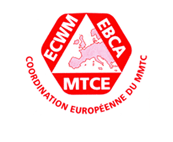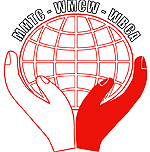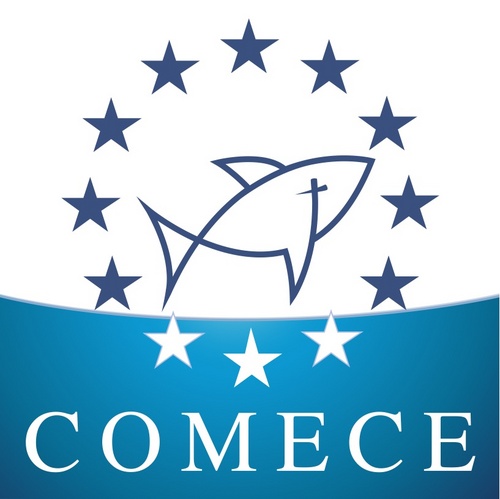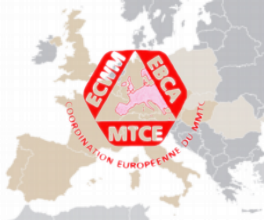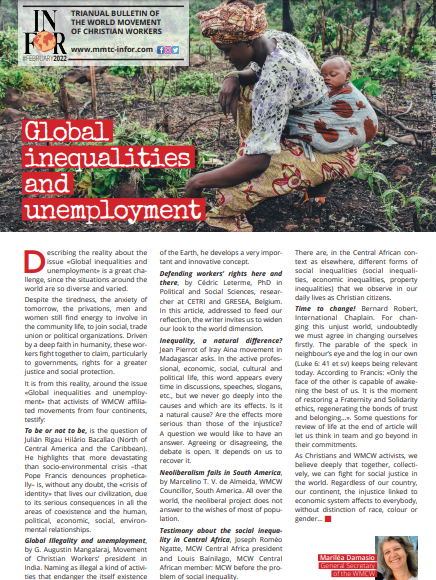Christmas, a proposal of peace and hope
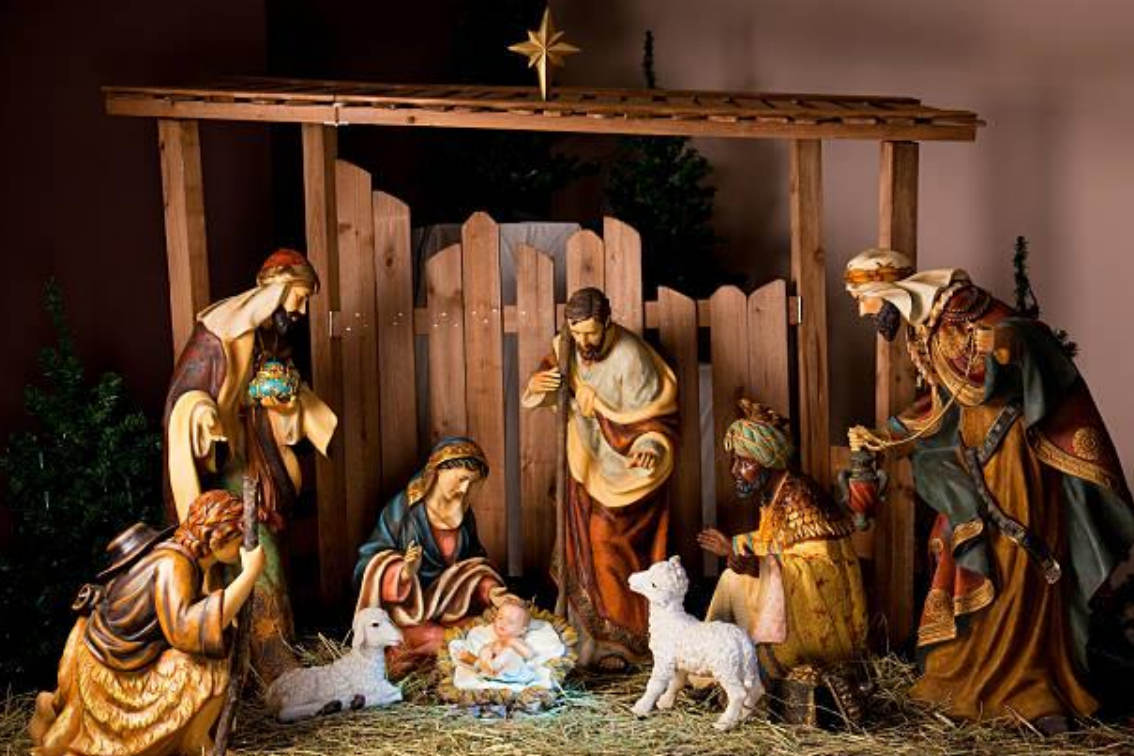
"Glory to God in heaven, and on earth peace to men, whom God loves" is a praise to God proclaimed by the heavenly host that joins the angel who had announced to the shepherds the good news that in Bethlehem, the city of David, a Saviour, the Messiah, the Lord, had been born. But the sign of the event is disconcerting: "you will find a child wrapped in swaddling clothes and lying in a manger" (cf. Lk 2:8-14). The sign is one of poverty and simplicity.
God loves us, this is a fact. He goes ahead to love us. His desire is that we may have peace in all that affects us personally: inner peace, family peace, peace in our relationships. A desire for peace that also has a public and political dimension: that the earth may live in peace, that Isaiah's prophecy may be fulfilled, that spears will be forged into pruning hooks and no nation will rise up against another, nor will they engage in war any more (cf. Is 2:4).
Summary from the ECWM seminar from 21-23 September 2023 in Barcelona
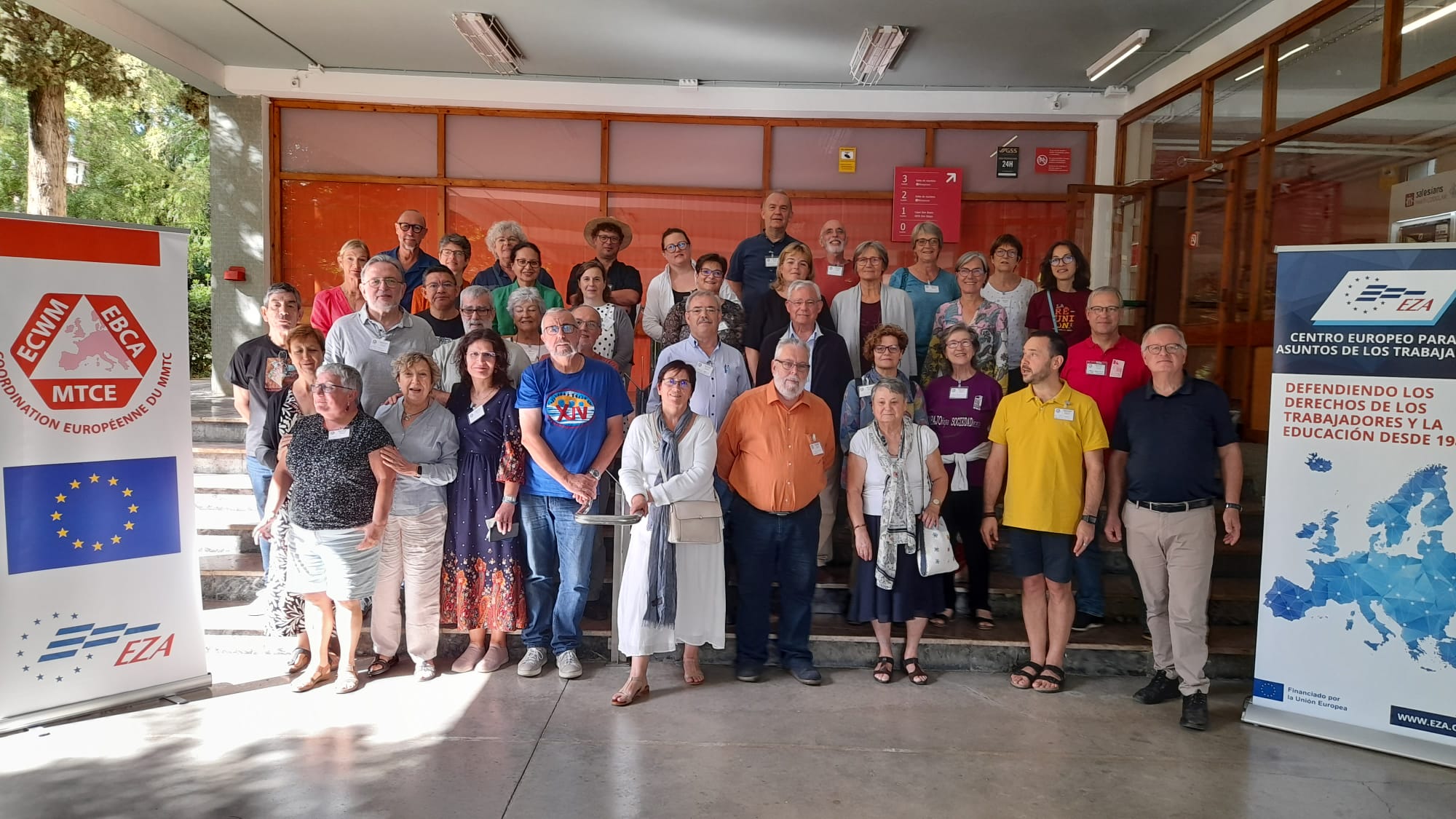
Defending and strengthening democracy together
As movements of Christian workers from Portugal, Spain, France, Switzerland, Austria, Germany and South Tyrol, we have come together against the backdrop of a strong rise in right-wing populism across Europe to reflect on the democratic and constitutional reality in our countries and to describe common future perspectives for our commitment in Europe.
We strongly emphasise that for our movements, respect for human rights, democracy and the rule of law are the fundamental prerequisites for a just and humane society. We are grateful to note that fundamental democratic processes continue to function in our countries and that these enable our fellow citizens to participate in politics. However, despite all our hope, we also view the current relationship between society and democracy with concern. On the one hand, the large number of grassroots democratic movements in our countries fills us with confidence. As the example of Fridays for Future shows, an entire generation is taking to the streets for a consistent environmental policy in particular. Many people are also paying close attention to economic and social developments and are speaking out in the form of initiatives or spontaneous organisations.
Our civil societies also benefit from the high level of voluntary commitment of large sections of the population to the common good. On the other hand, however, we are observing in our countries that in an overall mood characterised by aggression, political fatigue and even disenchantment with politics are becoming increasingly widespread. A large number of our fellow citizens feel that their worries about the future and everyday hardships are no longer recognised by politicians or are deliberately ignored. This, the lack of transparency in political processes and the growing gap between rich and poor are increasingly attracting the attention and electoral success of right-wing populist and nationalist parties. They benefit from a toxic mixture of frustration and protest, which is
further fuelled by the supposed inability of our governments to respond to the multiple major crises of our time.
Climate change, the permanent threat to the European and global peace order and far-reaching economic transformation processes are forcing tough political decisions that are rejected by parts of the population as unacceptable and perceived as unjust. The overall destructive consequences for the rule of law and democracy of the permanent takeover of power by right-wing populist governments and the "simple solutions" they practise can be seen in the erosion of the principles of the rule of law, particularly in Poland and Hungary. In our countries, we see a growing threat to democracy due to the recognisable neglect of the education sector and the pure profit orientation of the media world.
Our assessment of the worrying developments mentioned here is based on our understanding of the dignity of man, his life and his work, which is shaped by the Bible, Christian social teaching and our tradition as labour movements. Our vocation is to develop and shape a society in which every person can live with dignity, both individually and together with everyone else. Democracy and the reliability of the rule of law are indispensable prerequisites for this. We are convinced that a policy that serves democracy and its fundamental rights is based on a willingness to compromise, the ability to integrate and the will to overcome political differences and cultural divides. As Christian labour movements, we therefore devote all our energy to the protection and further development of democracy.
Together with all political and civil society forces of "good will", we are fighting for a democratic Europe that is committed to human dignity. With this in mind, we are involved in the current political debates on justice, human dignity and social prosperity in a diverse and colourful way. We actively seek an exchange of opinions and cooperation with individuals, grassroots groups, organisations and parties. In doing so, we are guided by the realisation that we can only achieve our goals through broad alliances. Trade unions and church organisations in particular are our natural partners. Our strength is based, among other things, on the diversity of social groups and realities reflected in the Catholic Church and their peaceful and productive coexistence. This enables us to treat people outside our movements with respect and to selflessly stand up for our values. In addition, the rediscovery of synodal decision-making processes in our church leads to a new appreciation of active listening and greater care in joint decision-making processes.
Our Christian faith and our basic orientation towards the healing message of the Gospel allow us to resist the temptation to break out in fear and panic when faced with the problematic developments and major challenges of our time. As hopeful people, we are wide awake to the strong growth of right-wing populism and its inhuman principles and messages. We are fighting with all our might against the creeping loss of solidarity in the society of our countries and against the erosion of democracy and the rule of law. As Christians, we have a duty to stand up for the rights and dignity of all people, especially those who have neither a reputation nor a voice.
Peace be with you, children of Ukraine and Russia, children of Europe!
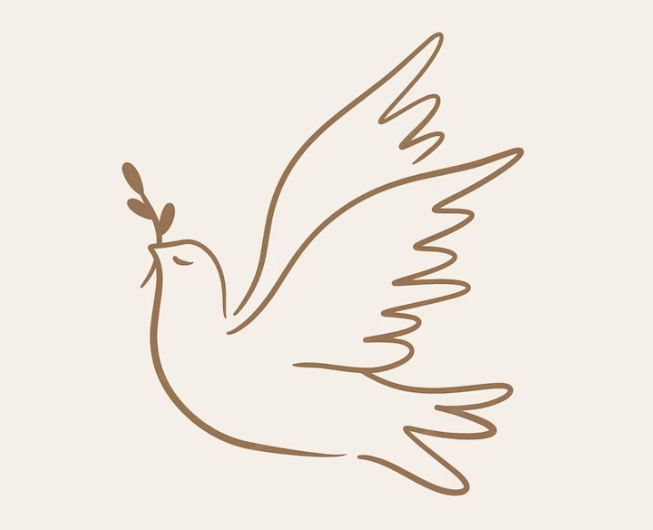
Twice in John's Gospel, after the Resurrection, Jesus says to his disciples "Peace be upon you". This wish of Jesus is not only addressed to his disciples, but to all mankind. And today we dare to say that it is addressed to all countries where there are armed conflicts, of greater or lesser intensity, and especially to the peoples of Ukraine and Russia.
A message addressed to the peoples and to the leaders of the peoples, to the politicians and to the military leaders. A message addressed to the weakest of all peoples where there are armed conflicts. A message to so many mothers, so many wives, so many small children, who see that their men, their fathers, do not return because they have died on the battlefield. The peace that Jesus wishes us is a message of hope with the desire that the powerful soften their hearts and seek understanding.
“It takes two to make a quarrel”, says a well-known and wise saying that gathers the experience of long years of conflict. That is why the Latin maxim “Si vis pacem para bellum” could become “Si vis pacem para pacem” if the parties to the conflict were willing to put an end to all hostilities, whether armed, economic, cultural, social, or labour-related. Thus, Jesus' call to be peacemakers makes perfect sense in our days and in the face of all conflicts: “Blessed are the peace-makers; they shall be counted the children of God”, we read in Matthew's Gospel. As hostilities and quarrels too often arise from the human heart, this text clearly emphasizes that peace is work.
Work Free Sunday - 3rd March
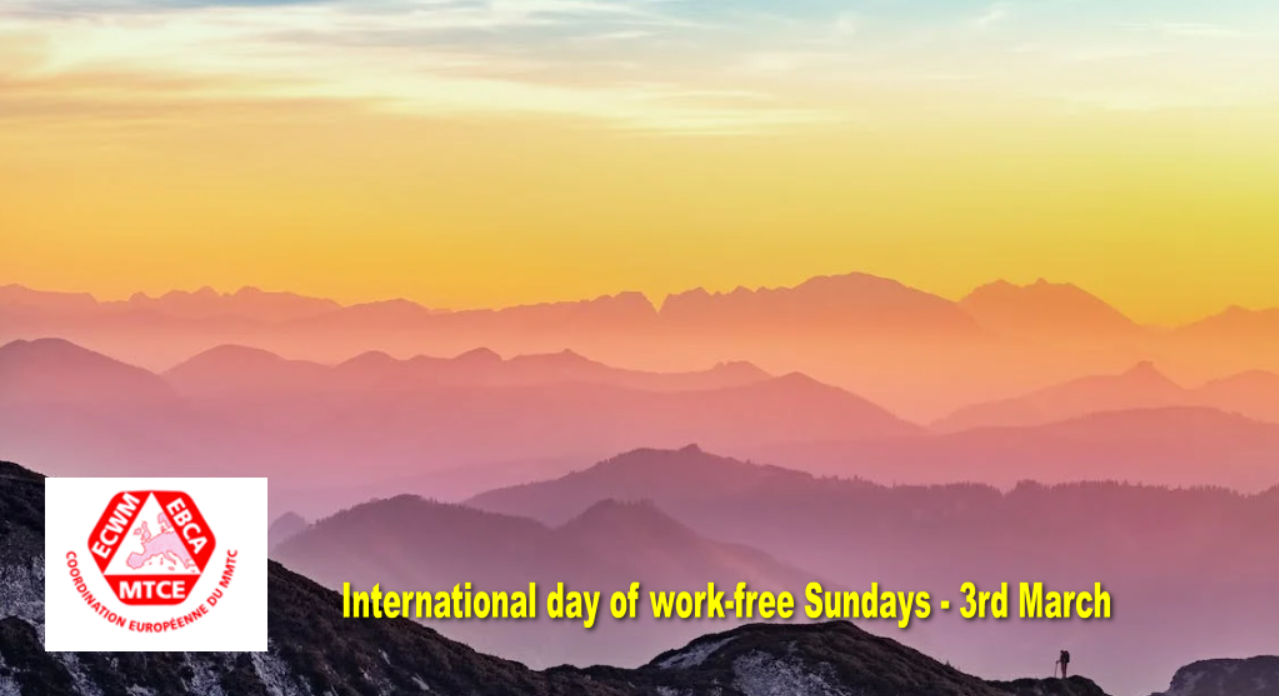
The separation between working time and leisure time has been decreasing. On average, workers' leisure time has lost importance. We live in a time of the primacy of capital over labour. Our principles are based on the primacy of the person over material things. The economy, business and work must serve people, not the other way around i.e. "work for the person, not the person for work". This is the meaning of the traditional principle of the primacy of labour over capital (see Laborem Exercens, 7 and 13).
March 3rd is Work Free Sunday. On this day we reflect seriously about these questions: Do we really need shops to be open all weekend including Sunday? As consumers, isn't there another day in the week to go shopping? Apart from strictly necessary activities, is it really necessary to work on Sunday? As a society should we set aside a day in the week where most citizens are free from work and more value is placed on rest, free time, leisure, creating more time for the family and their well-being?
In the organisation of work, the duration of working time in most developed economies took a long time to be understood and regulated. For many centuries people worked from sunrise to sunset.
The workers' struggles of the 19th and 20th centuries made it possible to establish a general limit of 8 hours a day, 5 days a week, in most sectors of work in western countries. During the 1990s, with the introduction of new technologies, it was believed that it was possible to reduce working hours and that workers would have more free time, a hope that did not come true.
Christmas Message by the European Christian Workers Movement
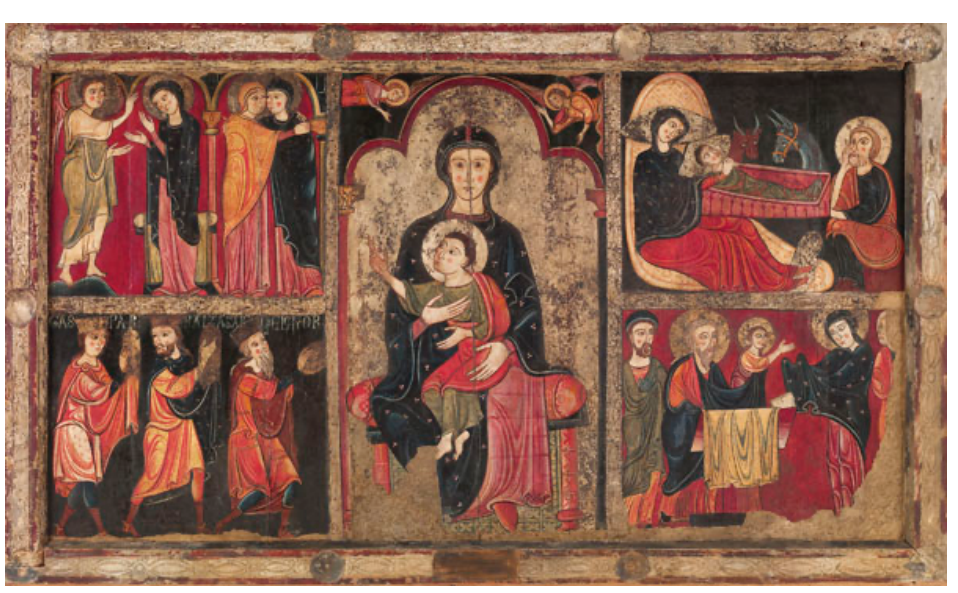
Rorate caeli desuper, et nubes pluant iustum
Drop down dew, ye heavens, from above, and let the clouds rain the Just
The prophet Isaiah tells us in chapter 45, verse 8: "Rain down, you heavens, from above, and let the clouds pour down saving justice!” However, St. Jerome (c. 347 - c. 420), when he translated the Bible into Latin, the so-called Vulgate, gave a messianic character to the text and what should have been: "Rorate, caeli, desuper, et nubes pluant iustitiam", became: "Rorate caeli desuper, et nubes pluant iustum". He translated "iustum" (Just), by "iustitiam" (Justice). Rain clouds to the Just!
And that is our prayer this Advent season: Clouds, rain down Justice, clouds rain down the Just One. Yes, God and our Father, sends the Righteous One to give us strength to carry out his justice. A justice demanded by the most destitute of our working brothers and sisters, in whom we see the face of Jesus, the Messiah, the Christ, the Son of God. Justice demanded by those affected by the health, ecological, economic, and social crisis, the consequences of which still affect so many of us, so many of our brothers and sisters.
At Christmas we celebrate the closeness of God. Closeness that we experience and celebrate throughout the year, wherever we are, because Jesus appears to us in the face of all those who, like him, cannot find a place to stay, cannot find a place to rest from the hardships of their lives. Christmas is a reminder of God's commitment to us, of his trust in us who, despite our precariousness, want to follow in the footsteps of the Righteous One who brings us justice.
O heavens, rain down your justice! It is this hope that has led us this year to become aware, at the Lisbon Seminar last September, of the consequences of the pandemic caused by Covid. This infinite hope which helps us feel the call to transform the world for which we work and fight into the world where we will be able to exercise our condition as daughters and sons of God. Hope is audacious, we said in the final manifesto. That is why we believe that not only is another world possible, but we believe that another world is necessary. The world that the Gospel proposes to us, the world that Jesus, the Son of God, the Righteous One, has dreamed for humanity.
In the Seminar that we will be holding in Barcelona next September 2023, we will insist on our role, as Christian workers, to make democracy truly a means that facilitates justice and social prosperity and leads our Europe to actually fulfil Jesus' answer to the disciples of John the Baptist: "The blind see, the lame walk, the lepers are made clean, the deaf hear, the dead are brought back to life and good news is reaching the poor. And how fortunate is the one who does not take offense at me." (Mt 11:5-6).
Christmas is the beginning of the world that Jesus, the Righteous One, the Son of God, has dreamed of. Let us join God's initiative by welcoming the Righteous One in us, and making him known among our working sisters and brothers. That will be the best gift we can give them. Merry Christmas, God bless you and your families!
Olinda Marques, President
Charly Brunner, President
Melchior Kanyamibwa, Coordinator
Armin Huerner, Treasurer
Josep Jiménez Montejo, Chaplain
Final Statement of the ECWM Seminar in Lisbon 2022: "Impact of the Coronavirus Pandemic on Employment and Social Affairs - Experiences and Actions for Recovery"
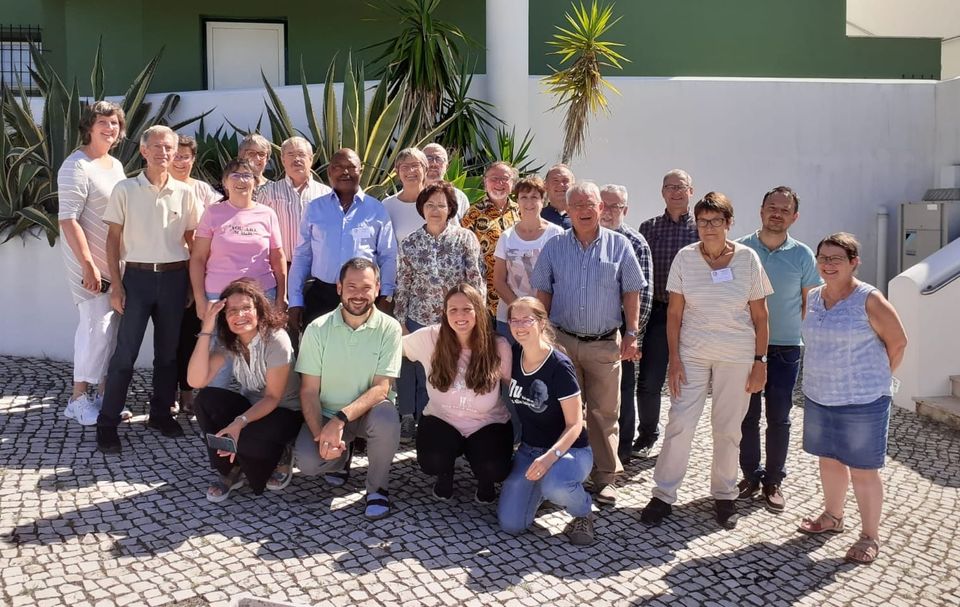
Hope is bold!
The European Christian Workers' Movement (ECWM/ECWM/MTCE) organised a seminar entitled "Impact of the Coronavirus Pandemic on Employment and Social Affairs - Experiences and Actions for Recovery" in Lisbon, Portugal, from 21 to 24 September. 35 representatives of affiliates from 8 European countries attended the seminar, all contributing with their experiences and perspectives.
The Corona pandemic is not only a health problem. It is also a social problem that exacerbates pre-existing problems like a burning glass. These include poverty, unemployment, unequal living conditions, inequalities between women and men, between rich and poor. The gaps have increased.
We see that existing injustices are worsening.
- In the pandemic, the situation of paid and unpaid care workers has become the focus of our attention. Care workers were already overworked before. The pandemic has further accelerated the downward spiral. In spite of the importance of health care which we saw during the Pandemic, monetary interest governs in several cases.
- Governments have provided financial support to businesses and workers. However, in many places this support was not targeted enough. This has led to many social upheavals.
- During the pandemic, the extent of mobile working or home office has increased significantly. However, not all countries have the legal framework in place to ensure workers' rights in these forms of work. It remains an open question how mobile work can be used for the benefit of workers. Shadow sides include the isolation of workers with consequences for worker’s organisation and the exclusion of those who do not have sufficient access to digital work tools.
- In the course of the discussion about home office, many people lose sight of the fact that a large part of work activities can only be done in the presence of others. These workers were particularly exposed to the virus during the pandemic. They must remain the focus of our attention.
- We have also seen that those groups that are already vulnerable were also particularly affected by the pandemic. These include, for example, poor people, migrants, Roma, people with disabilities, young people.
- E The pandemic had a major impact on many young people, for example in education, where everything was switched to digital education without adequate preparation and not all students had adequate jobs for home-schooling. Young people often work in precarious conditions, and precariously employed people were among the first to lose their jobs due to the pandemic. Psychologically it was also very difficult for many young people as they could no longer do activities with other young people due to the closure.
- The pandemic has resulted in psychological stress for many people to this day. The tendency towards individualism has increased.
Nevertheless, we also see positive examples that give us hope:
- During the pandemic, activities that otherwise often remained invisible, but which are particularly important for society, e.g., care, cleaning, transport, logistics, kindergartens and schools, etc., finally came into view.
- The willingness to act in solidarity has grown in many places. In neighbourhoods, people have taken the initiative to support each other.
- During the pandemic, social economy enterprises have particularly put their strengths to work. By putting solidarity at the centre, they have shown themselves to be particularly resilient. The social economy is active in all sectors: They are local enterprises that reduce inequalities and contribute to sustainable employment.
Judging
"Get up and walk" (Mk 2:0)
In the face of this reality, we formulate our convictions and orientations in order to bring them clearly into the public debate. In doing so, we listen in a special way to the experiences and needs of the people with whom we act in solidarity. In particular, we advocate:
- The right to dream in the future of work, in which we have significantly improved working conditions. It is good that socially relevant activities have become visible, but now it is a matter of sustainably improving working conditions According to the importance that this work has.
- For a world in which people are at the centre. They should be at the centre of our own actions, as well as at the centre of economic activity. We need an economy that serves people.
Every person is capable of doing something socially valuable. All people must also find the conditions in which they can work accordingly.
The weakest and most vulnerable must be the focus of social action in a special way. Welfare state support and social infrastructures must ensure that all people can live in dignity.
We formulate our convictions as an expression of our faith. Jesus Christ, in whose following we are, considered all as children of God and therefore we consider all people as sisters and brothers.
We stand up for solidarity. No human being lives independently of the society in which they live. We see the need to ensure that no one is left out of welfare state solidarity. And we see the need to further strengthen forms of solidarity in social economy initiatives.
Act
The pandemic has shown us in all clarity that social changes are necessary. We will demand these changes and contribute to solidarity and justice ourselves. As Christians and as Christian workers' movements, we want to contribute to a different, better world. We are committed to making these demands a reality:
- Our solidarity is concretised in our commitment to workers, especially those who are particularly vulnerable. We are already designing concrete projects for solidarity and will continue to strengthen them.
- We facilitate and organise education (formation and popular education) and empowerment, on a personal and collective level, for emancipation and autonomy.
- We promote dialogue between the church and the working class. We draw the attention of the church to working conditions and demand positioning in terms of human dignity.
- We actively shape political change and get involved in political debates.
- To this end, we enter into dialogue with other organisations and work together with them for change.
- We take up the challenge that the climate crisis poses for us. This includes reflecting on it in its connection with social issues and bringing an informed stance to social debates based on our convictions.
- We call for a due diligence law (supply chain law) at EU level that effectively improves working conditions and environmental responsibility in supply chains. We act also in our countries to influence the EU.
Where we work locally, we have an eye on global structural injustices. We believe that everyone can contribute to the social change we need. Even when things are difficult - we do not give up hope. Hope is bold.
ECWM, Lisbon 25th September 2022
-------------------------------------------------------
Page 1 of 8
